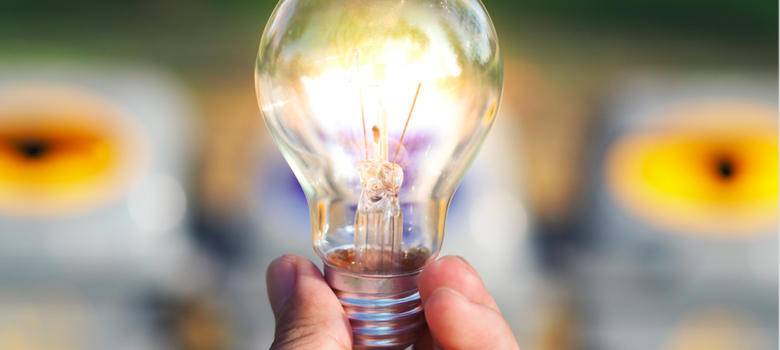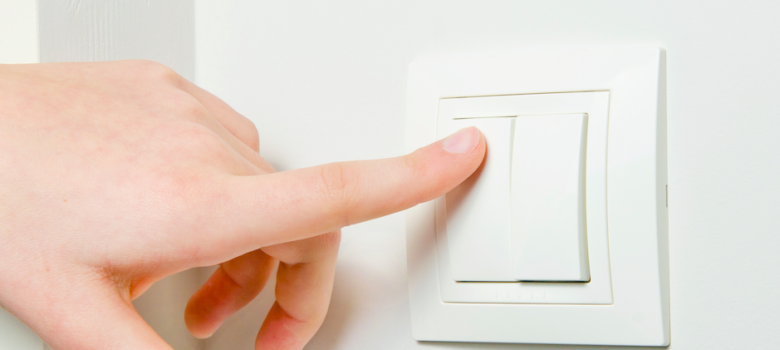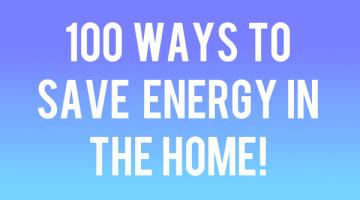
It can be quite hard to know how best to save energy in your home, because of all the conflicting facts and stories we hear. We’ve visited this subject before – but then we thought of even more commonly-held misbeliefs about energy efficiency! Here they are:
It’s cheapest to stay with the same energy supplier
Noooo! Whilst you’d think this would be a logical conclusion, the big energy suppliers are all about profits and won’t reward you for staying with them. They make their money on the premise that people can’t be bothered to swap – which, sadly, is mostly true. Other suppliers want to incentivise you to use their services, so they will offer you cheaper deals. It’ll only take you to minutes find the cheapest deal for you and there are loads of cost comparison websites online.
Economy 7 is always the cheapest tariff
Economy 7 was designed as an incentive for people to use the majority of their energy at night, using some of the energy that would otherwise go to waste from old power plants that couldn’t be turned off at night. Those with storage heaters can charge them at night, when the electricity rates are cheap, and use the stored heat the next day. This has, perhaps understandably, led some people to believe that Economy 7 is cheaper all day-round. This is definitely not true, and charging storage heaters/running electric convection heaters during the day is pretty much the most expensive way you could heat your home. On top of this, Economy 7’s days are numbered now that coal plants are being decommissioned in the UK. So, like we said earlier, it’s well worth shopping around to find the tariff that’s cheapest for you.
Getting new double glazing will save me money
We can see where this belief springs from – it seems like every time I turn the TV on, a certain ex-rugby player is telling me to buy a certain brand of new windows. However, replacing your double-glazed windows with newer models is not going to save you hundreds of pounds- more like max. £5 a year.
New double glazing might keep your home a bit warmer and less draughty, but it’s not really worth it when you take into account the thousands they cost to install. There are nearly always cheaper and more effective measures you can take first to improve the energy efficiency of your home.
LED lights are bad for health
There are loads of rumours about the ‘dangers’ of LED lighting. We wrote about it here. However, evidence points to most – if not all – of the claims being nonsense.

Dishwashers use more energy than washing up by hand
Most people are familiar with the large amounts of electricity used to run appliances such as washing machines and tumble dryers. It’s therefore unsurprising that some people assume dishwashers must be inefficient too. However, washing up by hand normally uses more water. The fact that some people leave the tap running throughout – and the cost of heating up all that water – means that a dishwasher cycle (especially run on an ‘Eco’ setting) is often the smart option. You’ll need to use it properly though – don’t overfill it or it won’t be more efficient at all.
Leaving the heating on all the time is cheaper
This is untrue in almost all cases. The idea comes from the fact that firing up your boiler uses energy, but it doesn’t use as much to get it going as it does to heat your home constantly all day. Unless your house is exceptionally well insulated, you will lose heating through the fabric of your home over time. This means if you’re heating it constantly, you’ll be losing heat constantly. Paying for heating when there’s no-one in the house is wasteful. The most efficient way to use your heating is to set it with a timer to come on when you need it.
We hope we’ve cleared up some confusion! Are there any other energy saving myths you’ve been told over the years? Let us know below.
Think we missed something? Do you have a different opinion?
Comment below to get your voice heard…













No Comments yet! Be the first one.